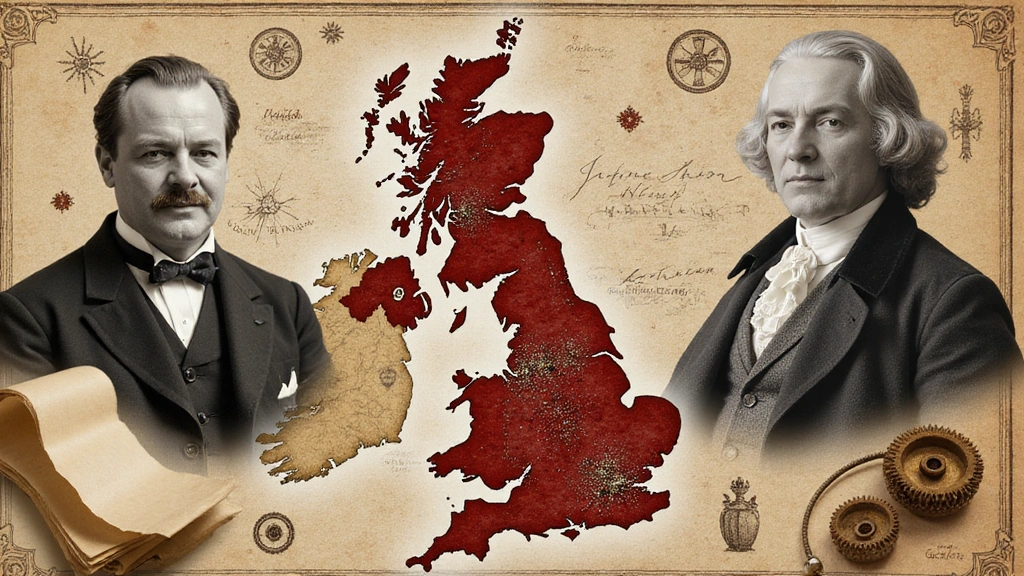Table of Contents
Introduction to Profitable Industries
The United Kingdom is home to some of the world’s most dynamic and profitable industries. From finance to technology, these sectors have not only shaped the UK’s economy but also contributed significantly to its global influence. Understanding the most profitable industries in the UK provides valuable insights into the nation’s economic landscape, workforce, and historical development.
In this article, we will explore the 15 most profitable industries in the UK, delving into their history, growth, workforce, and economic impact. Whether you’re an investor, entrepreneur, or simply curious about the UK’s economic powerhouse, this guide will provide a detailed overview of the sectors driving the nation’s prosperity.
1. Financial Services
Overview
The financial services sector is the crown jewel of the UK economy, contributing significantly to GDP and employment. London, often referred to as the financial capital of the world, is home to the London Stock Exchange and numerous global banks.
History
The UK’s financial services industry dates back to the 17th century, with the establishment of the Bank of England in 1694. The sector grew exponentially during the Industrial Revolution and solidified its global dominance in the 20th century.
Key Data
- Value: £132 billion (2022)
- Workforce: Over 1.1 million people
- Profits: £75 billion annually
- Growth Drivers: Brexit adjustments, fintech innovation, and global trade.
Why It’s Profitable
The UK’s regulatory environment, skilled workforce, and global connectivity make it a hub for banking, insurance, and investment services. The rise of fintech has further boosted profitability.
2. Technology and IT
Overview
The UK’s technology sector is one of the fastest-growing and most profitable industries in the UK, with London, Manchester, and Edinburgh emerging as tech hubs.
History
The UK’s tech industry began to flourish in the 1980s with the rise of personal computing. The dot-com boom of the 1990s and the recent AI and blockchain revolutions have further propelled the sector.
Key Data
- Value: £150 billion (2022)
- Workforce: 1.6 million people
- Profits: £50 billion annually
- Growth Drivers: AI, cybersecurity, and software development.
Why It’s Profitable
The UK’s focus on innovation, coupled with government incentives like R&D tax credits, has attracted global tech giants and startups alike.
3. Healthcare and Pharmaceuticals
Overview
The healthcare and pharmaceutical industry is a cornerstone of the UK economy, driven by the National Health Service (NHS) and global pharmaceutical companies like AstraZeneca and GlaxoSmithKline.
History
The UK’s pharmaceutical industry has roots in the 19th century, with breakthroughs in medicine and vaccines. The establishment of the NHS in 1948 further boosted the sector.
Key Data
- Value: £70 billion (2022)
- Workforce: 1.2 million people
- Profits: £30 billion annually
- Growth Drivers: Aging population, R&D investments, and global demand for vaccines.
Why It’s Profitable
The UK is a global leader in medical research and drug development, with strong export markets and government support.
4. Real Estate and Construction
Overview
The real estate and construction sector is a major contributor to the UK economy, driven by residential, commercial, and infrastructure projects.
History
The UK’s real estate market has been a key economic driver since the Industrial Revolution. Post-World War II reconstruction and urban development further expanded the sector.
Key Data
- Value: £110 billion (2022)
- Workforce: 2.4 million people
- Profits: £40 billion annually
- Growth Drivers: Urbanization, government infrastructure projects, and foreign investment.
Why It’s Profitable
High demand for housing, coupled with government initiatives like Help to Buy, has kept the sector thriving.
5. Retail and E-commerce
Overview
The retail and e-commerce sector is one of the most profitable industries in the UK, with giants like Tesco, ASOS, and Amazon UK leading the way.
History
The UK’s retail industry has evolved from traditional markets to modern supermarkets and online shopping. The e-commerce boom of the 2010s revolutionized the sector.
Key Data
- Value: £400 billion (2022)
- Workforce: 3 million people
- Profits: £60 billion annually
- Growth Drivers: Online shopping, consumer spending, and logistics innovation.
Why It’s Profitable
The shift to online shopping, especially during the COVID-19 pandemic, has significantly boosted profitability.
6. Energy and Utilities
Overview
The energy and utilities sector, including oil, gas, and renewable energy, is a key player in the UK economy.
History
The UK’s energy industry grew with the discovery of North Sea oil in the 1970s. Recent years have seen a shift toward renewable energy sources like wind and solar.
Key Data
- Value: £80 billion (2022)
- Workforce: 700,000 people
- Profits: £25 billion annually
- Growth Drivers: Renewable energy projects, government subsidies, and global energy demand.
Why It’s Profitable
The transition to green energy and the UK’s commitment to net-zero emissions have created new opportunities for growth.
7. Creative Industries
Overview
The UK’s creative industries, including film, music, and design, are among the most profitable industries in the UK, with global influence.
History
The UK has a rich cultural heritage, with the creative sector gaining prominence in the 20th century through music, film, and fashion.
Key Data
- Value: £115 billion (2022)
- Workforce: 2 million people
- Profits: £35 billion annually
- Growth Drivers: Streaming platforms, global demand for content, and government support.
Why It’s Profitable
The UK’s creative talent and global appeal have made it a leader in entertainment and media.
8. Manufacturing
Overview
Despite challenges, the UK’s manufacturing sector remains a vital part of the economy, producing everything from automobiles to aerospace components.
History
The UK was the birthplace of the Industrial Revolution, and manufacturing has been a key sector ever since.
Key Data
- Value: £180 billion (2022)
- Workforce: 2.7 million people
- Profits: £45 billion annually
- Growth Drivers: Advanced manufacturing, automation, and export markets.
Why It’s Profitable
Innovation and high-value exports, particularly in aerospace and automotive industries, drive profitability.
9. Tourism and Hospitality
Overview
The tourism and hospitality sector is a major contributor to the UK economy, attracting millions of visitors annually.
History
The UK’s tourism industry has grown steadily since the 19th century, with landmarks like Buckingham Palace and Stonehenge drawing global attention.
Key Data
- Value: £150 billion (2022)
- Workforce: 3.2 million people
- Profits: £30 billion annually
- Growth Drivers: Cultural heritage, global tourism, and events like the Olympics.
Why It’s Profitable
The UK’s rich history and cultural attractions make it a top destination for international tourists.
10. Education
Overview
The UK’s education sector, including universities and private schools, is a significant economic driver.
History
The UK has a long history of academic excellence, with institutions like Oxford and Cambridge dating back centuries.
Key Data
- Value: £70 billion (2022)
- Workforce: 1.5 million people
- Profits: £20 billion annually
- Growth Drivers: International students, research funding, and online education.
Why It’s Profitable
The UK’s reputation for quality education attracts students and researchers from around the world.
11. Automotive
Overview
The UK’s automotive industry, including manufacturers like Jaguar Land Rover, is a key export sector.
History
The UK has been a leader in automotive manufacturing since the early 20th century.
Key Data
- Value: £60 billion (2022)
- Workforce: 800,000 people
- Profits: £15 billion annually
- Growth Drivers: Electric vehicles, innovation, and global demand.
Why It’s Profitable
The shift toward electric vehicles and sustainable transportation has opened new revenue streams.
12. Aerospace
Overview
The UK’s aerospace industry is a global leader, producing aircraft and components for major manufacturers.
History
The UK’s aerospace sector grew during World War II and has since become a key player in global aviation.
Key Data
- Value: £35 billion (2022)
- Workforce: 120,000 people
- Profits: £10 billion annually
- Growth Drivers: Defense contracts, innovation, and global partnerships.
Why It’s Profitable
High-value contracts and technological advancements drive profitability.
13. Agriculture
Overview
The UK’s agriculture sector, including farming and food production, remains a vital part of the economy.
History
Agriculture has been a cornerstone of the UK economy since ancient times.
Key Data
- Value: £25 billion (2022)
- Workforce: 500,000 people
- Profits: £5 billion annually
- Growth Drivers: Organic farming, exports, and government subsidies.
Why It’s Profitable
The UK’s focus on sustainable farming and high-quality produce has boosted profitability.
14. Telecommunications
Overview
The UK’s telecommunications sector, including broadband and mobile networks, is a key enabler of economic growth.
History
The sector has evolved rapidly since the privatization of British Telecom in the 1980s.
Key Data
- Value: £40 billion (2022)
- Workforce: 300,000 people
- Profits: £12 billion annually
- Growth Drivers: 5G rollout, fiber broadband, and digital transformation.
Why It’s Profitable
The demand for high-speed internet and connectivity drives growth.
15. Legal Services
Overview
The UK’s legal services sector, centered in London, is a global leader in commercial law.
History
The UK’s legal system has been influential for centuries, with London becoming a hub for international law.
Key Data
- Value: £30 billion (2022)
- Workforce: 400,000 people
- Profits: £10 billion annually
- Growth Drivers: International clients, arbitration, and regulatory expertise.
Why It’s Profitable
The UK’s reputation for legal excellence attracts clients worldwide.
Conclusion
The most profitable industries in the UK reflect the nation’s diverse economic landscape and global influence. From financial services to technology, these sectors have not only driven economic growth but also created millions of jobs. As the UK continues to innovate and adapt to global trends, these industries will remain at the forefront of its prosperity. Whether you’re looking to invest, work, or simply understand the UK’s economic engine, these sectors offer a wealth of opportunities.




